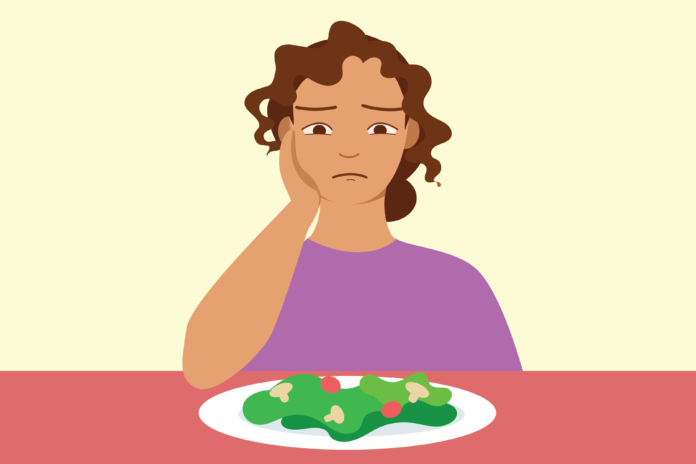We need to focus on loving and listening to our bodies when it comes to our diet
In the U.S., diet culture began in the early 1900s and has since accumulated an exhaustive list of different dieting fads for people to attempt––cleanses, low-carb, ketogenic, paleo, etc. Companies like Atkins and Weight Watchers have made a profit by supporting the narrative that people need to lose weight in order to love themselves and to be considered healthy. Although these programs are not as popular as they once were, new diet trends that engender the same narrative have taken their place.
A-list celebrities, popular magazines and social media influencers are at the top of the list for promoting these diet trends. By just posting pictures of their meals or grocery hauls, they influence thousands of people to start a diet they know nothing about. I, myself, have fallen into this trap before, just to quickly find out that I do not have the resources nor the education to be making these decisions about the food I eat.
More importantly, what works for one person, doesn’t always work for everyone else. All bodies are different and therefore require different foods and methods for losing weight. Consequently, most diets aren’t tailored to individual needs––a potential reason why some people see progress and others do not while on the same diet.
Generally, people aren’t quick to share the negative outcomes or hardships we experience day-to-day. Instead, we tend to use social media to highlight the favorable and positive aspects of our lives. In regards to dieting, it’s more pleasing to show the successful results rather than the struggles and lack of progress. Sadly, this generates the idea that certain diets are easy and accessible for everyone.
Self-control and deprivation are the two pillars of dieting. Diets require you to exercise self-control in order to deprive yourself of certain foods, and thereby satisfaction, depending on the rules of your diet. In reality, not all days can be good ones, and a quick mood fixing solution is the comfort food that tends to exist outside the bounds of our diet. Thus, the purpose of a “cheat day.” The name itself, however, carries a negative connotation that’s intended to make us feel guilty for defying the rules of our diet. It’s inherently dangerous to not only deprive ourselves of the foods we may actually need, but also to deprive ourselves of something that may bring us happiness.
Although weight loss goals originally intended to motivate us to stay on track with our diet, setting them poses a threat to our well-being. Setting unrealistic and unattainable goals leads to disappointment and, more dangerously, unhealthy eating habits. Losing weight does not happen overnight, making it hard to stay inspired. As a consequence, people may lose hope and develop disordered eating habits.
This does not mean dieting is always ineffective and bad. In fact, many people have success stories. But it’s important to note that dieting and depriving yourself of certain foods is not the only way to become healthy. Listening to your body, tuning in to your emotions and being rational about the food you eat is a much more substantial way to live. Intuitive eating is not a diet plan, rather it pushes you to reject the diet mentality altogether.
For far too long, diet culture has convinced us that our bodies aren’t good enough or that we need to change ourselves to appease society’s unrealistic standards. Rather than measuring our self-worth against the superficial wellness represented in movies, television and on social media, the focus needs to be switched from losing weight to loving and listening to our bodies.
Written by: Kacey Cain –– klcain@ucdavis.edu
Disclaimer: The views and opinions expressed by individual columnists belong to the columnists alone and do not necessarily indicate the views and opinions held by The California Aggie










